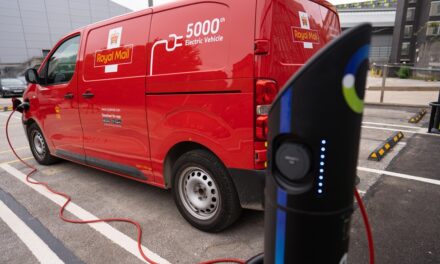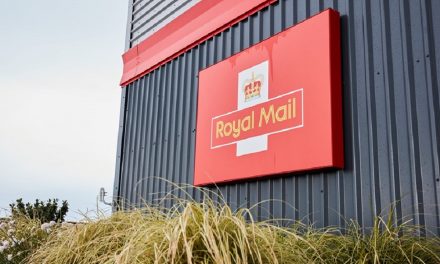
International Distributions Services: profit in GLS more than offset by loss in Royal Mail

International Distributions Services has released it results for the half year ended 24 Sept 23.
Financial highlights
- Group revenue £5,862 million grew by 0.4% year-on-year.
- GLS revenue grew by 5.9% year-on-year driven by volume growth of 6%.
- Royal Mail total revenue declined 2.9% year-on-year; growth in total letter revenue, with price offsetting volume decline; lower parcel revenue a result of lower volume due to weaker macroeconomic environment and drag from customer losses experienced during industrial action in FY 2022-23.
- Year-on-year domestic parcel volume and revenue improved sequentially over the half, with growth exiting Q2.
- Group reported operating loss of £243 million (2022-23: loss of £157 million3), with profit in GLS more than offset by loss in Royal Mail, as expected.
- Group adjusted operating loss of £169 million in first half.
- GLS adjusted operating profit £150 million (2022-23: £162 million), reflecting cost pressures and impact of strategic investments and working day effects.
- Royal Mail adjusted operating loss of £319 million (2022-23: £219 million), in line with expectations due to lower revenue and cost of pay deal, which particularly impacted H1.
- Balance sheet remains strong with pre-IFRS 16 net debt of £142 million (September 2022: £150 million net debt; March 2023 £181 million net debt) and liquidity of £2.3 billion. Royal Mail (excluding Parcelforce Worldwide) CGU impairment assessment reperformed, with the no additional charge nor reversal required. Royal Mail balance sheet unchanged.
Martin Seidenberg, Chief Executive Officer of IDS plc, commented: “We have two businesses with great potential – Royal Mail and GLS. Three months into the job I am more convinced of that than ever. “When I arrived, I took action to stabilise Royal Mail, after performance had suffered due to industrial action and customer losses. We’ve delivered on that plan through rigorous cash management, controlling our costs and ruthlessly prioritising high-return projects.
“My top priority now is improving quality. From experience, I know that quality is key for customer satisfaction and sustainable growth, so we are pulling out all the stops to deliver Christmas for our customers. This includes recruiting 16,000 seasonal workers, opening five temporary sorting centres and launching an incentive scheme for operational employees worth up to £500 each for
hitting local and national quality targets.
“We have a clear plan for improvement longer term, including reinforcing operational management at a regional and local level, and recruiting faster than ever before, reducing reliance on agency workers. A number of changes we secured in the agreement with the Communication Workers Union (CWU), such as new sickness and attendance policies, will also help to underpin quality.
“We’re making good progress implementing that agreement, but our change agenda is wider and will take time.
“We’re modernising the network, with two new automated hubs, and becoming more agile in our operations, more efficient, and more sustainable. I’m pleased to say customers are coming back to Royal Mail, and we’re on track with our win back programme.
“Looking ahead, we are transforming our business every day, but we can’t do it all on our own. We also need the regulator and the Government to do their bit. It’s simply not sustainable to maintain a network built for 20 billion letters when we’re now only delivering seven billion. The UK is not immune to the trends that we see across the world. Many other comparable countries have already reformed their Universal Service, and the UK is getting left behind. We welcome the fact that Ofcom will be reviewing options for the Universal Service, but the need for reform is urgent.
“GLS has a proven track record of growth, solid margins and cash generation. We are continuing to invest in our network and portfolio and have the right model, and the right strategy, to deliver long-term growth and margin expansion.”













